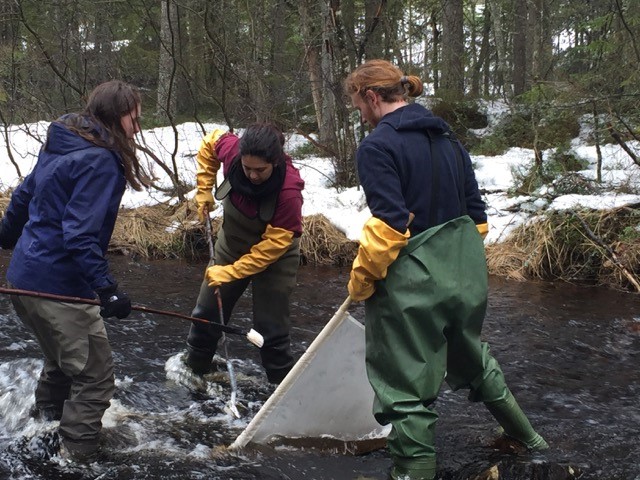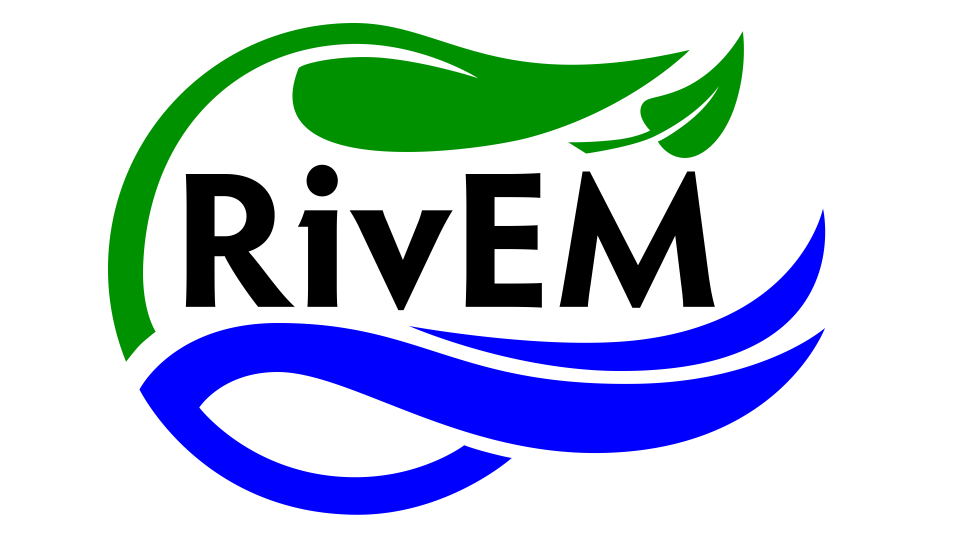Story: Anissa Bengattat’s internship at NRRV
Posted by Karl Filipsson | Naturresurs rinnande vatten
Anissa Bengattat (middle), together with Rachel Prokopius (left), exchange student from Northern Kentucky University, and Elio Bottagisio (right), master student from France, doing fieldwork in the stream Rannån.
In April 2018, Anissa Bengattat from France visited Karlstad University and did an internship with NRRV. Here she writes about her weeks in Sweden.
Hej där!
I’m Anissa Bengattat, a French student in HND ‘Management and Protection of Nature’ in a town located in France, named Vic-en-Bigorre. As a practical training, I have been doing my three-weeks internship at Karlstad University with the Ecology and Conservation Biology program.
During these weeks, I have learned vastly about different aspects of freshwater ecology. My main mission has been to collect, sort, identify and archive macro-invertebrates, collected in the field, in the freshwater stream Rannån. With the help of Richard Durtsche, guest-professor from the USA, and his student Rachel Prokopius, I managed to follow a project from the start to the end.
I have tested digital imaging of the identified invertebrates, and I have seen the calorimetry process, used in order to make links with the fishes‘ energetics consumption.
I have also been in the stream aquarium laboratory to participate in some interesting experiments. First, I have learned about the whole fishes respirometry system, made up by R. Durtsche, where we studied oxygen consumption for brown trout. Then, I’ve learned about Karl Filipsson’s experiments about climate change effects on predation on brown trout. Their behaviour, linked to the temperature and the presence or not of burbot, and how to identify it scientifically by extracting trouts‘ RNA.
Finally, I have attended master classes for these three last weeks, which consolidated my idea to do a bachelor after my HND, and then a master, if possible, abroad.
This internship wasn’t only about studies to me, it was also about meeting new people in another country with a different way of living, and a different way of teaching. It was about making concrete links in my mind between how much I still have to learn, and how to develop into an accomplished scientist.
Thanks to John Piccolo who set up my internship, thanks to the international office of Karlstad university which helped, and thanks to Elio Bottagisio, the French master student who told me about this program. And finally, thanks to all the people who taught me things during this internship, Richard Durtsche, Rachel Prokopius, Olle Calles, and Karl Filipsson. I hope to come back.


